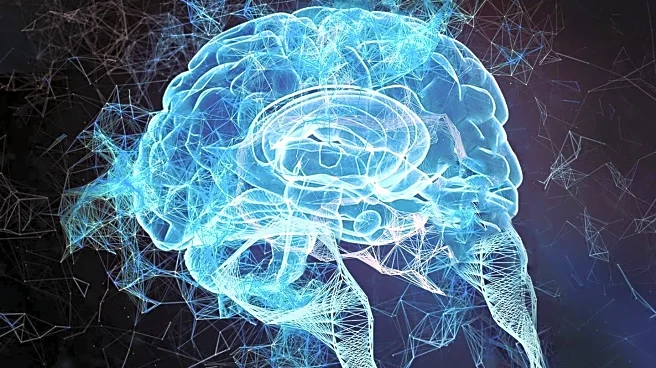What is the story about?
What's Happening?
A team of French and Canadian researchers has developed a molecular switch that boosts energy production in mitochondria within brain cells, reversing memory loss in mice with dementia-like symptoms. This study links energy failure in neurons to cognitive problems and suggests a new target for therapy. Mitochondria are responsible for converting nutrients and oxygen into ATP, the cell's energy currency, through oxidative phosphorylation. The researchers used chemogenetic tools to activate a receptor on mitochondria, increasing energy production and restoring memory function in mice models of Alzheimer's and frontotemporal dementia.
Why It's Important?
The findings offer a potential new approach to treating neurodegenerative diseases like Alzheimer's, where energy deficits in brain cells are observed early in the disease process. By targeting mitochondrial function, researchers may be able to address cognitive symptoms and improve memory retention. This study highlights the importance of bioenergetics in maintaining cognitive health and suggests that enhancing mitochondrial activity could be a viable therapeutic strategy.
What's Next?
While the study provides promising results in mice, further research is needed to explore the safety and efficacy of this approach in humans. Clinical translation would require careful consideration of dosing, brain regions, and long-term effects. Researchers will continue to investigate the role of mitochondria in cognitive health and explore potential applications for other neurodegenerative conditions.
Beyond the Headlines
The study underscores the potential for mitochondria to be central targets in the fight against dementia, shifting the focus from treating symptoms to addressing underlying cellular dysfunction. This approach may lead to new therapeutic strategies that enhance brain energy metabolism and improve cognitive outcomes.
















